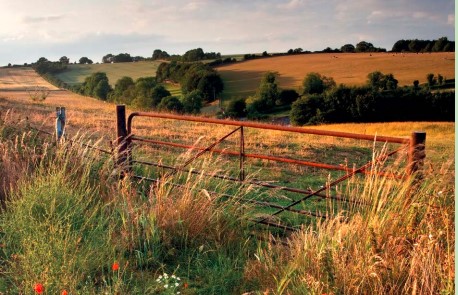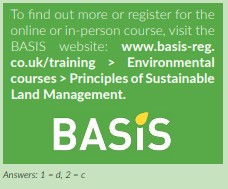Healthy soils, as the basis for healthy crops, livestock and ultimately the business, is fundamental
to readers of Direct Driller.
Knowledge of soils, the relationship between soil physics, chemistry and biology and completing soil health assessments are principles that are often discussed in the pages of this magazine. Readers will then use the findings from analysis and in-field assessments to continually improve soil organic matter and biology along with many other areas to achieve optimum soil health.
So, would you know the correct answer to these questions below…
- How wide should a soil pit be for carrying out a VESS assessment?
a) Approx. 30cm wide, 22-25cm long
b) Approx. 30cm wide, 25-30cm long
c) Approx. 15cm wide, 5-10cm long
d) Approx. 20cm wide, 22-25cm long
2. Which of these is a description of SQ3 on the VESS soil scoring system?
a) Aggregates readily crumble
b) Aggregates break easily with one hand
c) Most aggregates break with one hand
d) Difficult to break up
Answers at the bottom of the article!
If so, would you also be able to list the three key wildlife needs and how to identify whether you have a species-rich grassland on your farm, for example? Farmers, land managers and advisers all have a tremendous breadth of knowledge both on arable, livestock or wider production systems balanced with optimising the environmental features on the farm to increase biodiversity, whilst maintaining healthy soils, clean water and reducing emissions. With the increasing importance of sustainable land management, achieving efficient food production and delivering environmental outcomes, BASIS have put together a ‘Principles of Sustainable Land Management’ course, to delve into these key areas in more detail.

This short course is designed for farmers, land managers and advisers and split into five modules, which cover topics including managing farmland wildlife and habitats, soil health and the efficient use of nutrients. The course provides an insight into the legislation that sits behind government ambitions, such as the 25 Year Environment Plan, public and private funding schemes available including the Sustainable Farming Incentive and considers the economics of the implementations of options
Available as an online, self-guided interactive course with activities you can take out to the farm or local field or as in-person course from the autumn, you are able to choose the option that best suits your time and situation. Anyone interested in gaining more in-depth knowledge of sustainable land management can then progress to the more advanced courses, such as BETA Conservation Management, the Soil and Water Management Certificate or Advanced Quality of Soils.
Whether you are starting out in the industry or keen to expand your knowledge, learning about these principles of sustainable land management will not only help you maximise the benefits which can be achieved through the new Environmental Land Management schemes, but provides an opportunity to further develop a profitable and sustainable farming business which delivers for you, the environment and the general public.
